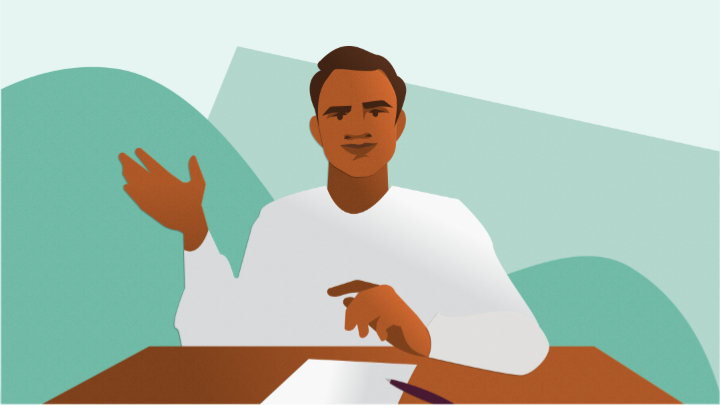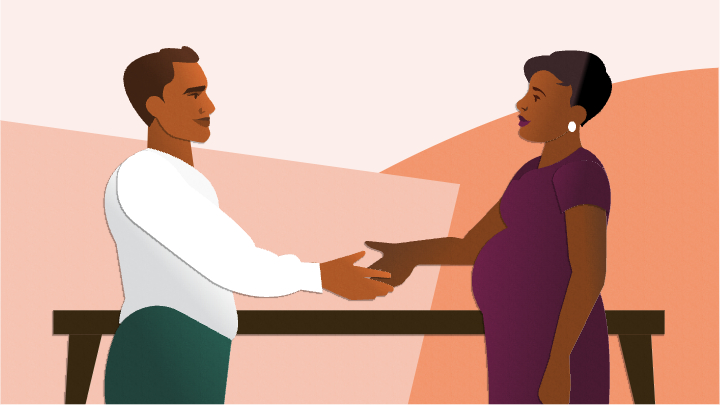10 Problem-Solving Interview Questions (2024 Answers)
Updated 15 April 2024
Related jobs on Indeed
What are problem-solving interview questions?
Hiring managers ask problem-solving interview questions to gauge a candidate's ability to gather data, analyse problems, consider pros and cons and come to an informed decision. Questions focusing on problem-solving may refer to specific situations you may have experienced throughout your career and how you respond to them.Problem-solving interview questions can help interviewers understand how candidates do the following:- Gather information from various sources
- Use critical thinking to evaluate information
- Make decisions that benefit a business
- Communicate their findings or recommendations to team members.
10 problem-solving questions and answers
Here you will find frequently asked questions about problem-solving interview questions and example answers:1. Can you describe how you solve a problem?
Hiring managers may ask this question to identify your problem-solving process. Ensure your answer explains some of the key elements of problem-solving mentioned above.Example: ‘When I encounter a problem, I start by researching ways others have solved the same problem. From there, I can begin to formulate an effective resolution that works best for myself and the organisation. I use critical thinking to assess the risks and evaluate all possible solutions. Next, I make a constructive decision on which method to implement. I maintain excellent communication with team members to ensure everyone is informed on the steps taken and expected results. I monitor the effectiveness of the solution and make alterations to optimise the outcome.’2. Tell me about a time when you experienced an unexpected challenge in the workplace.
This question can help the interviewer understand your ability to be flexible when problem-solving. In your answer, provide a specific example from your work experience that highlights your flexibility.Example: ‘When I was working as a café manager, I had a customer who came in to pick up a catering order. When I went to get her order, I found that the order was given to another customer by mistake. I arranged to have her catering order prioritised and urgently created that afternoon and then had it delivered to her home free of charge.’Related: How to Handle Interpersonal Conflict at Work (With Examples)3. How do you consider the positives and negatives of a situation before coming to a decision?
This question can help the hiring manager learn more about your problem-solving process. In your answer, you can highlight whether you can make logical decisions using available information.Example: ‘To begin with, I will outline my goals and perform a risk assessment against interfering factors. I do this because it allows me sufficient time to consider whether these goals are achievable with my resources. If the positives outweigh the negatives, I may design effective resolutions in advance to ensure the smooth running of a project.’4. What's your approach to handling a disgruntled customer?
Interviewers may ask this question to determine if you can remain calm and professional in difficult situations and actively resolve conflict. In your answer, you can highlight your conflict-resolution skills.Example: ‘I believe listening and working fast to solve a customer's problem is the best approach. A shopper once approached me, upset that she couldn't find what she was looking for. I actively listened to her problem and then stopped what I was doing to show her exactly where the item was.’5. Explain a time when you had to change your plans at the last moment.
Interviewers may ask this question to see how you solve problems in stressful situations. The STAR method can be used in your response to display your flexibility and quick thinking skills.Example: ‘In my previous role as a fitness manager, I received information the night before a planned event that the catering company hosting a team event had cancelled. I immediately began making phone calls to alternative hosts and managed to book a different company to provide us with food samples we could offer members on the night. I made a stop at their store on my way to the event to collect the tasting samples, and my team and I were able to hand them out to members.’6. Describe a time where you made a mistake and had to fix it.
The hiring manager may pay attention to which steps or method you took to fix a mistake. In your answer, choose a scenario where you can highlight your ability to overcome challenges.Example: ‘At the beginning of my role as an account manager, I had trouble with managing multiple workloads. As a result, I began to rush my work, leaving an error on a customer report. Once I identified the mistake, I took full responsibility.I informed the customer and my team of my error and generated a new, correct report. This situation made me review my work style and realise the importance of delegation. Following the case, I used a digital schedule to plan and prioritise my tasks to ensure adequate time to complete all tasks without error.’Related: How to Answer ‘Tell Me About a Time You Made a Mistake’7. What steps do you take to minimise potential risks in a project?
This question addresses how you would prevent a problem. If you haven't had the opportunity to mitigate risk yet, you can discuss the hypothetical steps you would take.Example: ‘If I identify potential risk in a project, I begin by assessing it. Once I understand each variable behind the risk, I can devise a mitigation plan in advance. I collaborate with relevant team members to brainstorm resolutions before they are necessary, to ensure all problems are tackled immediately. I continue to monitor the effectiveness of the solution over time. In my opinion, risk mitigation is a combination of knowledge and ongoing monitoring.’8. Would you say you have good problem-solving skills?
In any application, it is important to leave a lasting impression. To accomplish this, aim to produce self-assured answers.Example: ‘I have a good grasp of problem-solving as I am confident at making constructive decisions that prevent risks from leaving a lasting impact on my department or organisation. As a confident leader, I utilise my collaborative skills to identify the strengths of myself and those around me to produce effective resolutions. I always aim to show team members that I can be relied upon should a challenge arise.’9. Describe a time when you had to solve a problem without all the necessary information.
Solving problems without all the required information is common in business settings. Interviewers may ask this question to reveal how you handle the lack of information to effectively resolve an issue. You may choose to provide an example that highlights your ability to work independently.Example: ‘When I was working as an office manager, the director expressed concerns about employee productivity. There are many possible reasons for reduced productivity. I sent a short survey to all employees, asking them to express their opinions on their work environment and whether they had sufficient resources. After gathering this information, I could see that employees didn't have an efficient way to organise their tasks. I suggested we implement a project management system, which increased productivity by 15%.’10. Provide an example of when you weren't able to meet a requested deadline and explain how you fixed the situation.
Interviewers may ask this question to identify your approach to failure. In your answer, discuss how to took responsibility and which steps you used to ensure it did not happen again.Example: ‘When I was at university, I had a few projects due within a short timeframe. I got the due dates confused and submitted an assignment a day late. To avoid this happening again, I proactively reached out to my lecturer, who recommended tools to keep track of deadlines. This advice has proven very beneficial throughout my career.’Related: Top 16 Interview Questions and AnswersWhat are some examples of problem-solving skills?
Problem-solving skills can assist you in discovering the source of a problem and finding a solution. While problem-solving is a skill itself, there are many other skills you can use in conjunction with problem-solving to tackle challenges in the workplace:- Active listening skills
- The ability to conduct researching
- Creative skills
- Communication skills
- Confidence in decision-making
- The ability to work as part of a team and independently.
How do you demonstrate problem-solving skills in an interview?
Below are a few tips that can help you highlight your problem-solving skills effectively in an interview:- When explaining a strength of yours, be sure to support it with a supporting example.
- Provide details and specifics about the problems you have faced and how you responded to them.
- Choose examples that allow you to demonstrate as many of your problem-solving skills as possible.
Explore more articles
- A Guide to a Day in the Life of a Customer Service Representative
- 13 Jobs in Marine Biology (With Salaries and Duties)
- How to Become a Content Creator: Your Complete Guide
- How to Become an Endorsed Enrolled Nurse (Including Skills)
- How to Become a Casino Dealer in 6 Steps (With Skills)
- How to Become a Bartender (with Skills and Certifications)
- Different Types of Finance Jobs (With Duties and Salaries)
- 48 Example Interview Questions for a Project Officer
- How to Find Work in Australia
- What Does a Sheet Metal Worker Do? (With Salary and Skills)
- How To Become Investment Banker (With Steps Guide)
- How to Become a Customs Officer: Full Career Guide


